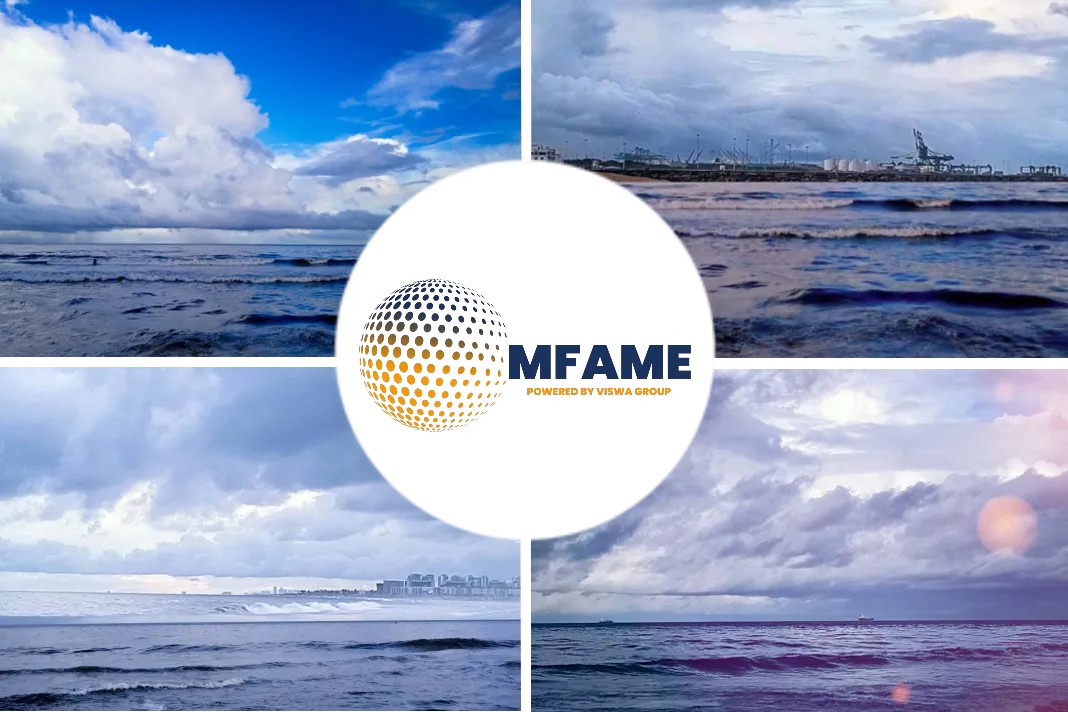 Shipping companies are crying foul over EU plans to regulate the sector’s emissions. But the industry’s claim that new rules would break international law has no legal basis, write Faïg Abbasov and Aoife O’Leary in their article published on Euractiv.
Shipping companies are crying foul over EU plans to regulate the sector’s emissions. But the industry’s claim that new rules would break international law has no legal basis, write Faïg Abbasov and Aoife O’Leary in their article published on Euractiv.
EU extends ETS
After thirty years of regulatory silence on international shipping emissions, the EU has now committed to act by extending its Emissions Trading Scheme (ETS) to cover the maritime sector. Not surprisingly, much of the shipping industry is trying to prevent this by stoking trade tensions and raising international legal questions.
Their goal is ostensibly to scare the EU and member states against climate action on shipping. Politics aside, legally speaking, this is an incompetent effort to say the least. Here’s why.
The EU is amending its Monitoring, Reporting and Verification Regulation (MRV) for shipping emissions which requires all ships stopping at EU ports to provide information on their emissions. Some of the amendments would require those ships to actually reduce emissions on journeys to or from and within the EU.
The European Parliament has approved the amendments, but is waiting for the European Council to weigh in. Regardless of the outcome of that negotiation, the European Commission has promised to bring forward several proposals this year on reducing shipping’s climate impact.
The Debate
So, while there will be a debate about how the EU is going to regulate international shipping, there is no doubt that it will happen soon.
The shipping industry suggests that putting shipping in the EU ETS might not comply with international law. The same question was raised when aviation was put in the EU ETS with various industry groups challenging the legality of that move. However, the EU Court of Justice, Europe’s highest court, ruled that the action did comply with international law.
Shipping and aviation share some characteristics, both being sectors that are subject to national, regional and international laws. But there are, obviously, different regulations and international treaties that apply. For shipping the United Nations Convention on the Law of the Sea (UNCLOS) is the ultimate UN convention that sets the foundations of maritime law.
The paper by ClientEarth
The question of EU jurisdiction to regulate international shipping emissions was comprehensively addressed in a paper written by ClientEarth back in 2011 (Aoife O’Leary, one of the authors of this piece, was the main author of that paper).
The paper finds that UNCLOS allows the European Union to regulate emissions that happen outside its territory. UNCLOS establishes a “port-state control” jurisdiction, which under the Article 211(3) states explicitly that states may “establish particular requirements for the prevention, reduction and control of pollution of the marine environment as a condition for the entry of foreign vessels into their ports”.
The same article further notes the potential for regional cooperation between states with identical port entry requirements. UNCLOS provides no automatic right of entry by ships into foreign ports (except when in distress).
Accounting for the pollution
As vessels voluntarily enter the port of an EU member state, they are thereby agreeing to submit to the conditions of entry to that port, and this can extend to conditions affecting the part of the journey beyond the EU Exclusive Economic Zone. It is a bit like countries placing entry visa requirements for foreign citizens, which could theoretically include any condition.
This stems from one of the fundamental principles of international law: the sovereignty of states.
Underpinned by such sovereignty, port-state jurisdiction under UNCLOS allows the EU (or any other country signatory to it) to ask all ships to account for all the pollution on the journey to or from an EU port.
If it wanted to, the EU could even ask ships to account for all the pollution it emitted in the past year, or decade. Or require the ship to use a certain fuel. Theoretically speaking, the EU could even mandate that all ships be painted pink before they call at EU ports, but it would not do so.
The fact that a ship is voluntarily in an EU port is enough to give the EU jurisdiction under UNCLOS. If the ship does not want to comply, then it is simple: the ship should not call at an EU port. In layperson’s terms, this means that if you want access to the EU market for your goods, then you must be on board with EU climate ambition.
EU and IMO Regulations
Moreover, EU regulation doesn’t conflict with any International Maritime Organisation (IMO) regulation. History shows that regional action has been a driver of progress at the IMO. For example, the EU MRV regulation led to the adoption of the IMO Data Collection System, similar to the EU MRV but at a global level and unfortunately less transparent.
Similarly, the EU sulphur regulation ensured that the IMO did not delay its 2020 0.5% global sulphur cap, reducing the amount of air pollution from shipping worldwide. Then as well, the EU banning single-hull tankers from entering its ports helped accelerate the global phase out of single-hull tankers.
All these regulations reached beyond the EU territorial waters and its exclusive economic zone. They were implemented using port-state control jurisdiction.
The shipping industry would be better off engaging in constructive discussions on how to design European measures to speed up the deployment of zero-emission vessels. Putting international shipping into the EU ETS is clearly legal – this decade old dispute must be put to rest.
About the Authors
Faïg Abbasov is shipping director with Transport & Environment, a clean mobility campaign group; Aoife O’Leary is director for international climate at the Environmental Defense Fund, a green NGO.
Did you subscribe to our daily newsletter?
It’s Free! Click here to Subscribe!
Source: Euractiv
















